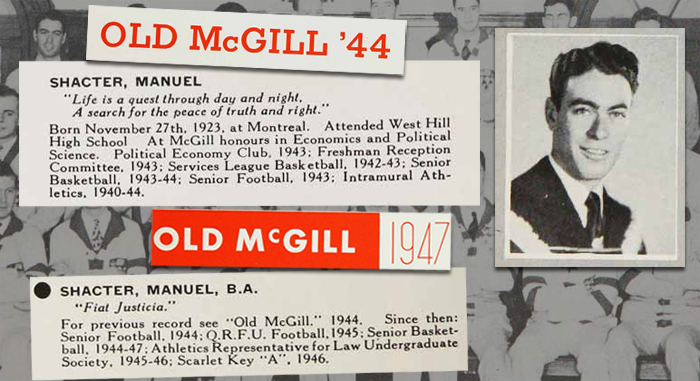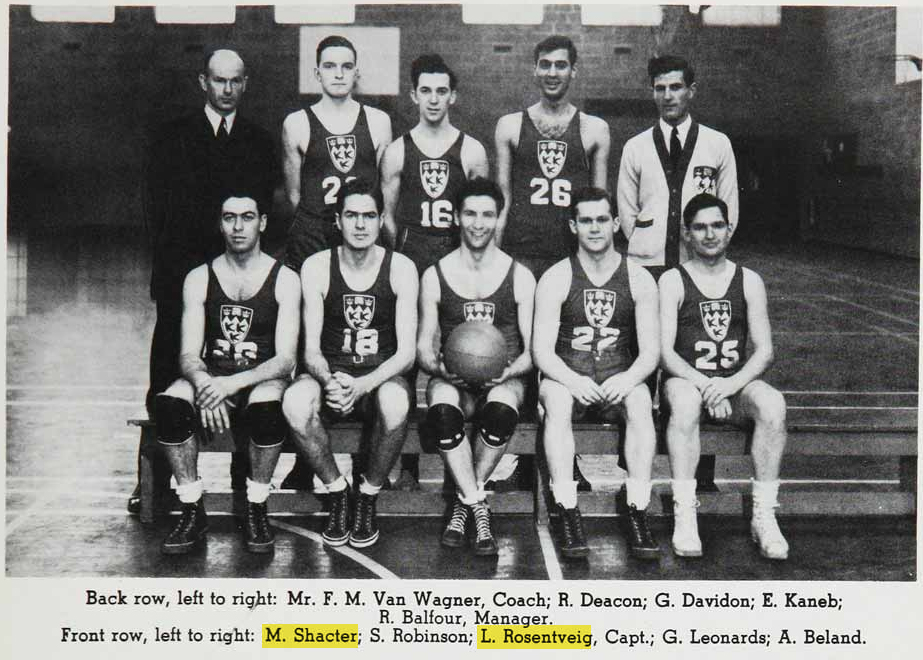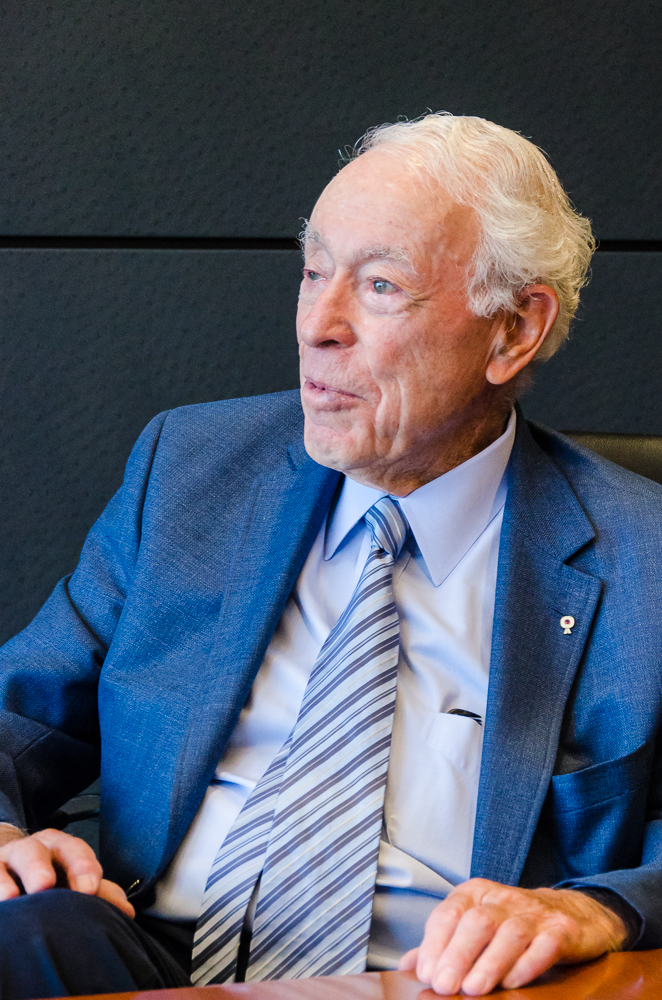
Your photo is displayed next to F.R. Scott’s in the hallway of Old Chancellor Day Hall, on a plaque commemorating Brody v. The Queen [1962] SCR 681. Can you tell us about this case?
In the early 1960s, I was representing the book distributor of Lady Chatterley’s Lover* in a censorship case that was about to reach the Supreme Court of Canada. I had handled the case through the lower courts, but had never pleaded before the Supreme Court. When my client suggested that perhaps we should get some counsel, I told him I knew just the guy. I called Professor Frank R. Scott, who had been my Constitutional Law and Obligations professor (he was good enough to pull off such different topics!), and he was delighted to join us on the case. It was then that he wrote the poem “A Lass in Wonderland” for me. Only Frank R. Scott could get away with a poem like that, that dealt with the problems of the day. It was still “la grande noirceur,” the church dominated in Quebec.
* Note from the editor: Lady Chatterley’s Lover is a book by D.H. Lawrence which was confiscated by Quebec authorities as an obscene publication under the Criminal Code, a decision upheld by a trial judge and the Quebec Court of Appeal. The Supreme Court allowed the appeal—on a 5-4 split—, holding that the book did not constitute an obscene publication. The case is still considered a major step forward for human rights in Canada.
You studied at McGill Law from 1945 to 1947. How was life at the Faculty back then?
We started as a small class of about 14, it dwindled down to ten, and then three more students joined us in 1947. They were returning from service; one student was an admiral, another a general, the third, a flight commander. It was impressive to see them walk into class in their uniforms. It was also a time when the law profession was just opening up to women – in our class, there were two and, being such a small group, we were all quite close. Unfortunately, I don’t think they went on to practice law.
Also, there were no more than three full-time professors at the Faculty back then – all other courses were given by practicing lawyers coming up from downtown. We had very good instructors. Professor John Peters Humphrey (BCL’29) taught us International Law and Roman Law. He was later hired by the nascent United Nations to draft the Universal Declaration of Human Rights.
You also completed your BA at McGill, so you were a student during the war. Do you have any stories from that time?
One year, someone came to gather people to go west and help with the harvest on the farms, because all the older males had been drafted, or had joined the Forces. A group of us from McGill went out there for six weeks—from the end of September to the beginning of November. It was a great learning experience. We moved from farm to farm. Some used us, others found us not so good—I can’t blame them! On one farm, I developed a very good rapport with the son, who was a year younger than me—he actually taught me how to drive on a farm truck.
We have Old McGill yearbooks that say you were quite the sportsman.
I was part of the McGill basketball team during my studies. After the war, a friend and I were recruited by the coach of the football team. He wanted guys who could catch, so he approached players at a basketball practice! Later, in 1946 or 1947, I got knocked out while playing, and the McGill Daily reported it in its summary of the game. That day, my Tax Law lecturer, Claude Richardson of Ogilvy Renault, asked me to stay after class to offer me this advice: “You have to make up your mind – either you play football or become a lawyer. You can’t do both, because of the danger to your brain.” I took his advice and left the football team. Unfortunately, I did not get to thank him once I came to realize how sound his advice had been, years later when people became much more conscious of concussion injuries.
How has the profession changed in your years of career?
Every year, young lawyers who just graduated say they want to do litigation, or tax law… My advice has always been that for the first two years, you should try to do everything.
Then, if you want to specialize, specialize. My feeling is that if you are a lawyer, but you have never been to court, then you are missing out on an important part of the law.
That being said, in the past, lawyers did not have the luxury to specialize. You took whatever case came through the door. Today, the law has become much more technical, and there is that need for specialization. The Tax Act used to be under 100 pages—not 300 like today.
To this day, you still go to the office. What makes so passionate about law that the flame burns on, 70 years later?
Young law students often picture themselves as saving human rights, and then have to face the reality that it does not happen often. That being said, once in a lifetime, you get a case like Lady Chatterley’s Lover, which involves freedom of speech, and truly makes a difference.
I enjoy coming into the office. I hear what’s happening in the legal world, and occasionally someone asks my opinion. Mr. Mendelsohn Senior has died, but his son Max Mendelsohn works at the firm now, and one of Leo Rosentzvieg’s sons is a partner too—the legacy lives on.
This interview was originally published on 12 September 2017 and has been edited for length and clarity.


